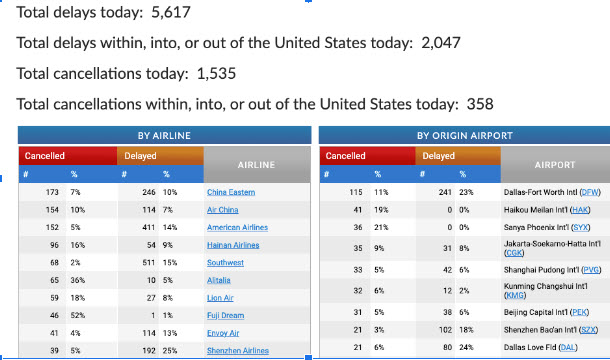
- Home
- Maintaining Independence and Safety in the Home
- Addressing Ageism and Promoting Positive Attitudes Towards Aging
- Estate Planning: A Simple Guide for Seniors
- Rediscovering Your Inner Innovator: Thinking Outside the Box
- How Seniors Might Celebrate Milestones
- Cherishing Our Seniors: 6 Ways to Show You Care
- Nourishing the Golden Years: 5 Dietary Considerations for Seniors
- The Importance of Preventive Care and Regular Check-ups for Seniors
- Adapting to Change
- Feeling Lost in a Sea of Doctors and Deductibles
- Live Your Best Life: Easy Exercises for a Healthier, Happier You
- God's Gifts in the Digital Age: Technology Enriching the Golden Years
- Living Well with Arthritis: A Guide to Natural Approaches
- Helping Seniors Combat Loneliness and Thrive
- A Senior’s Guide to Weight Loss
- Ready for Your Next Chapter? A Friendly Guide to Retirement Planning
- Embrace Aging with Delicious Food: Your Guide to an Anti-Aging Diet
- BMI and Seniors: Understanding the Numbers for a Healthier You
- Finding Freedom from Regret: A Christian Perspective for Seniors
- How Seniors Benefit from Drinking Water
- Finding Peace and Contentment in Knowing Jesus: A Guide for Seniors
- 5 Ways for Seniors to Make Meaningful Connections
- Finding Freedom from Guilt
- How Seniors Can Help When Disasters Occur
- A Senior's Guide to a Mindful Morning Routine
- Strength Training for Seniors
- The Inspirational Journey of Colonel Sanders"
- Boosting Vitality and Longevity for Seniors
- Boosting Senior Health: A Guide to Antioxidant-Rich Foods
- Engaging Ways for Seniors to Foster Intellectual Growth
- A Biography
- Strategic Estate Planning for Family Harmony
- Navigating the Challenges of Aging with Grace and Humor
- Decoding the Nostalgic Humor in Senior Citizen Phrases
- Senior Driving: When to Hit the Brakes
- Seniors: Guiding the Younger Generation
- Medications & Herbs: A Risky Recipe
- Preserving Your Legacy
- Balancing Act
- Seniors Need Rest Too
- Helping Someone Survive an Emergency
- The Pros and Cons of Perseverance
- You Can Experience Joy
- Dealing with Difficult Emotions
- The Best Time to Retire
- How to Declutter Your Home
- Benefits of Adequate Sleep
- Encouraging an Adult Child
- Maintain and Improve Your Brain Power
- How to Deal with Embarrassment
- When You’re Beyond the End of Your Rope
- Help a Struggling Friend
- Taking Care of Yourself
- Improve Your Concentration and Focus
- How the Web Impacts Your Life
- Your Personal Power
- On Building and Maintaining Relationships
- A Picture of God
- Becoming More Adaptable and Resilient
- Making the Best of Bad Situations
- The Surprising Benefits of Intermittent Fasting
- Cultivate an Attitude of Gratitude
- Repair a Relationship
- AVOID CAREGIVER BURNOUT
- Top Tips for Keeping a Sharp Mind
- Succeed in Social Gatherings
- Benefit Society Even in Retirement
- Surviving Winter
- From the Depths of my Scatter-Brained Mind
- The Story of Joseph
- Parenting is Not for the Faint-hearted
- Keeping Passion in Your Marriage
- The Bible’s Influence on History
- Surviving the Loss of Your Spouse
- Purposeful Traveling
- Senior Money Management
- When Life Goes South
- Retire Well
- Using Smartphones and Tablet
- How to Choose an Assisted Living Community
- Giving and Getting Help
- Avoid Being Scammed
- Senior Safety Source
- Technology Can Benefit Seniors
- Why Do We Dream
- Your Mental Ability
- What Is Cold Water Therapy?
- Plan a Road Trip
- Comparing Sweeteners
- Improve Your Communication Skills
- Being Comfortable in Social Gatherings
- Store-Bought vs Home-Grown Food
- Surviving Tough Times
- What About Social Media?
- What About Intermittent Fasting?
- Combat Mental Fatigue
- Be Alone and Don’t Feel Lonely
- Building and Maintaining Relationships as We Age
- Being True to Yourself and Others
- Remaining Generous in a Difficult Economy
- How To Stay Awake After A Poor Night’s Sleep
- Stay Warm in the Winter
- Dealing With Insufficient Retirement
- Seniors Can Avoid Fraud
- An Attitude of Gratitude
- Ways to Make Your Friend Feel Appreciated
- 9 Ways Tackling Clutter Can Enhance Your Wellbeing
- Biofeedback: Is It Right For You?
- A Biblical Admonition
- Debunking 5 Myths About Caregivers
- Fun Activities for Your Elderly Parents
- Considered Getting a Pet?
- The Art of Grandparenting
- Seniors Aging Gracefully
- Travel Destinations in the Continental U.S.
- Micro Exercises for Senirs
- The Great Sport of Pickleball
- Helping Someone with Alzheimer's
- The Positive Side of Adult ADHD
- Still Fresh, Ancient Wisdom
- Dealing with Memory Issues
- Considerations for a Retirement Home
- Know About Panic Attacks
- Improving Sleep
- 4 Comforting to Help You Cope with Grief
- Exercise Safely with Back Pain
- Food Allergies And Intolerances
- Loneliness and Your Health
- What Jaws Can Teach You About Overcoming Fear
- Simple Tricks to Beat Brain Fog
- How Focus Can Change Your Life
- 5 Ways To Build Your Resilience
- Overhaul Your Diet In Six Simple Steps
- Handling Social Anxiety: Three Life Hacks
- What Do You Do When Times Get Tough?
- A Foolproof Formula for Finding Peace During Uncertain Times
- What Will You Do if Your Family and Friends Seem Unsupportive?
- How to Help Elderly Parents Deal With Depression and Anxiety
- What You Need To Do To Have A Fulfilling Retirement
- How To Hire the Best Elderly Care Provider
- What Is Oxidative Stress And Why Is It Bad?
- Four Ways To Incorporate Movement Into Everyday Life
- How To Get Started With Decluttering
- How To Control Issues With Emotional Eating
- 5 Ways to Tackle Social Anxiety
- Symptoms Of A Gluten Intolerance
- How To Stop Worrying All The Time
- Steps To Better Self Development
- New Help for Type 2 Diabetes
- What Being Wrong Teaches You
- 5 Activities That Will Get You Out Of The House
- Conquer Social Anxiety With These 5 Tips to Increase Your Courage
- Offshore Banking for the Average Person
- Time Management: Is It Really Worth the Effort?
- Avoid Being Scammed for Your Money
- How Retirement Affects Cognitive Decline
- The Conscientious Path to Boosting Your Immune System
- New Research for Increasing Your Serotonin Levels
- Your Most Dominate IQ
- Income Options for Retirees
- Cognitive Changes in Seniors as We Age
- About Women: The Challenges Men Don’t Understand
- The Lost Art of Listening
- Playing It Safe With Artificial Sweeteners
- Expand Your Mind: Discover Public Media
- Differences Between Credit Unions and Banks
- About Outlet Malls and How You Can Save More
- What Your Kids Can Teach You About Self-Care
- 5 Cruel Truths That You Need to Know
- Know This About Your Pharmacist
- Silent Heart Attacks and You
- Caffeine Use Disorder
- Living with COPD
- What You Need to Know About Keeping Your Joints Safe and Healthy
- 3 Little Known Truths to Help You Plow Through Tough Times
- Every Credit Card Owner Should Know These Things
- Our Jaunt to the Mainland
- How Seniors Can Navigate Downsizing
- Adventures in Paradise
- “To Age” or “To Mature”
- Retire on a Budget
- 12 FUN RECREATIONAL ACTIVITIES FOR SENIORS
- Life of a Senior Country Hick
- Life is a Routine
- Growing Up Not a Job for Kids
- Who's in Your Corner?
- How to be More Open and Share Your Feelings
- 6 Ways to Strengthen Your Bones as You Age
- Perceived Abuse?
- Getting to Know Him
- Taking a Sensible Approach to Selflessness
- Tips and Tricks for Longevity
- Following God's Plan to Crush Your Goals
- How to Use the Internet to Find Low-Cost Hotel Rates
- Your God of Christmas
- What You Need to Know about Sugar and Your Immune System
- The Benefits of Meditation and Prayer in Everyday Life
- Common Problems Caregivers Face When Working With Seniors
- 8 Ways to Reduce Your Gas Expense
- 7 Ideas to Help You Care Less About What Everyone Thinks
- Tis the Season for Loneliness?
- 13 Simple Ways to Increase Your Energy and Mobility
- Feel Better by Leaving the Burden of Guilt Behind
- How to Overcome Frustration and Disappointment
- The 3 Most Effective Leisure Activities for Preventing Dementia
- Self-Education Habits That Enable You to Teach Yourself Anything
- How Practicing Generosity Helps You Find Happiness
- Surprising Facts about Smoking and Your Mental Health
- Learning How to Become a Good Storyteller
- 7 Low-Carb Hacks to Help You Feel Full All Day
- Tips to Increase Your Energy When You Feel Worn Out
- What Can a Gluten-Free Diet Do For You
- What You Can Do
- How to Eat Healthy During the Holidays
- Finding Peace
- Surprising News about Serotonin and Depression
- Dealing with the Death of a Loved One
- Feeling Lonely?
- Are You a Victim
- The Importance of Looking to the Future
- 5 Ways to Feel Gratitude
- How to Keep Going
- Top 10 Life Secrets
- Long Road Trip 3
- Senior Road Trip 2
- Senior Road Trip 1
- Seniors Make Each Day Count
- 9 Ways to Push Beyond Fear
- Heal Your Broken Heart
- Laugh Your Way to Good Health
- Get a Handle on Your Debt
- Read This Before You Have Laser Eye Surgery
- Learning How to Overcome Failure
- How to Connect with Others
- Dont Get a Prepaid Card
- See How Easily You Can Make
- Time Management vs Energy Management
- Say Goodbye to Daytime Drowsiness
- Top 5 Costs Retirees Often Fail to Foresee
- 5 Dirty Tricks Credit Card Companies Like to Play
- Understanding the Federal Reserve
- Interesting Seniors Memories - 1
- How the Top 1 percent Think
- Stop Seeking Approval from Others
- Beware of Energy Drinks
- 9 Strategies to Boost Your Energy
- Life Long Learning Budget
- A Love Letter
- Don't Believe Everything
- Lying to Yourself
- Stop Procrastinating
- Quit Smoking
- Human Relationships
- Sugar and Salt
- Develop Healthy Habits
- Super Senior Centenarians
- loneliness
- Importance of Mindfulness
- Strengthen Your Health
- Grumpy Old People
- Budget Friendly Travel
- Ways to Relax
- Becoming a Senior Entrepreneur
- Good to Lose Interest
- Seniors and Applesauce
- Eat Healthy food
- Gratitude Improves Health
- 17 Tips to Lose
- Benefits of Relaxing in a Sauna
- Letting Go of Anger
- An Aging Metabolism
- Aging Well
- About Managing Pain
- Age Gracefully
- Land a Better Fare
- aging grandparents
- Aging Affects Mood
- 10 Ways to Manage Frustration
- 9 Things Emotionally Healthy People Do
- Keep Your Mind Young and Healthy
- Challenges Long Distance Caregiving
- Handle Interference Technology
- About the Farm
- Save Money Travel
- Speed Up Your Metabolism
- Eat Healthier on a Tight Budget
- walking for weight loss
- Essential Senior Superfoods
- Secrets from Seniors on Finding Lasting Love
- Senior's Guide Nutrition
- Senior Guide Strong Hands
- 7 Tips to Maximize Retirement
- Problems Can Sneak Up on Seniors
- GentryBnB
- college prep tips
- What Baby Boomers Should Know
- 15 Healthy Ways to Comfor Yourself
- Senior Online Dating
- Seniors Approaching Birthday
- How to Introduce Your Adult Children to Your Significant Other
- Guide to Healthy Skin
- How to Thrive
- Find Relief from Snoring
- What About Macular Degeneration?
- Vegetarian Path to Healthy Aging
- Dietary Fiber
- Develop Your Creativity
- Need for Validation
- Overcoming Frailty
- Senior Shakeups
- Senior Medication Management
- Quality Senior Sleep
- Empty Nest Syndrome
- Seniors Travel "Locally"
- Senior Travels
- Benefits of Naturopathy
- A Senior's Guide
- Medication Safety Tips
- Losing Weight After 40
- Limited Resources
- Enjoy a Day
- Benefits of Juice Fasting
- Be More Creative
- An Essential Nutrient: Water
- Exercising Strategies to Increase Your Energy
- Ease Chronic Pain
- Cultivate Positive Behavior in Your Teenagers
- lose weight on a plant diet
- Seniors Winter Hawaii
- Love Yourself
- Ways to Bury the Pain From Your Past
- Lower Your Medical Bills
- Working Through Difficult Emotions
- Lessons from Seniors
- Strengthen Your Heart Health
- Counsel for Seniors
- Banish Self Destructive Thoughts
- Why Adult Friendships are Important
- Benefits Juice Fasting
- Seniors with Hearing Loss
- Inner Balance in a Hyper-C0nnected World
- Improve Your Powers of Concentration
- Monthly Financial Survival
- Benefits of Strength Training
- Managing Family Stress
- Handle Toxic Relationship
- What is the Point of Life?
- Top 10 Steps to Enhance Your Memory
- How to Deal With Loss
- 15 Ways to Stay Connected with Your Grandchildren
- Alcohol Ages You
- Coffee and Brain Health
- Surprising Truth About Weight Loss
- Health Benefits of a Vegan Diet
- strategies to help lose weight
- Talking to Strangers
- dementia
- Senior Guide
- Financial Fraud and Seniors
- Staying Brain Sharp
- Boost Our Immune System
- Benefits of Covid
- Essential Communication Skills
- Benefits of Fasting
- The Cab Driver
- Top Ten Benefits of a Daily Walk
- Helping Seniors Prevent Falls
- Thirteen Ways for Seniors to Maximize Immunity
- 10 Anti-Aging Techniques
- Flip House
- Thirteen Natural Ways to Fall Asleep Quickly
- Best Time Seniors Quit Smoking
- Memory Issues?
- A Great Experience!
- Good News!
- Immune System Powerup
- The Human Spine
- Alcohol and Our Brains
- Health Care Needs After Seventy -2
- Our Health Care Needs Beyond Seventy
- inflammation
- From a Friend
- More Benefits of Laugher
- Laughter Benefits Our Bodies
- Mountain Grandeur
- Yellowstone Here We Come!
- Memories and Special People
- Seniors Travel
- Childhood Memories
- Seasons of Life
- Influenza or Pneumonia
- Diabetes
- Respiratory Diseases
- Arthritis
- Heart Disease
- Seniors Oral Health
- Senior Balance Issues
- Senior Health Concerns
- Bouncing Back
- Becoming a Senior
- On Being Content
- Science and Evolution
- Priorities
- 13 Natural Ways to Fall Asleep Quickly
- How to Care for a Loved One Long-Distance
- When Travel Brings a Smile
- What's This About a Vegan Diet?
- GMO, Friend or Foe?
- What If?
- Rest for Seniors
- The Virus, Covid-19
- A Healthy Option?
- Eating Healthy
- Healthy Habits
- Exercise
- The China Study
- Guilt
- Stress Busters
- Is Science Suspect?
- Hope
- Politics and Religion
- When Life Ends
- Bible Biography
- A Wandering Mind
- About Me
- Privacy Policy
- Contact Me
- What's New?
How Seniors Can Save Money Traveling
History assures us that winter won't last forever. Armed with that good information, we can make plans for the not-so-distant arrival of spring and summer. Many times advance planning can save us money while we also realize the benefits of reducing the immediate doldrums of enduring cold and dreary winter days.

If you find the included information to be helpful, you may wish to bookmark this page.
#1. Book Early.
Booking in advance is definitely worth it. It can save 61% on airfare and $6 to $21 on hotels.
Here are the best times to book:
- Long-haul flights — about 115 days out from your travel date (CheapAir)
- Short flights — around 64 days before your departure date (CheapAir)
- Cruise — as soon as possible (yes, also two years in advance) (RoyalCaribbeanBlog)
- Accommodation — if you’re willing to risk it as late as possible, but approximately one month in advance (Afar)

#2. Know How to Pay
If you're leaving the country, make your bank aware of your travel destinations to avoid freezes or alerts. Learn the pros and cons of withdrawing cash from an ATM or paying by credit card.
Plan ahead for paying for currency exchanges and include those costs in your planning.
#3. Pack as Lightly as You Can.
Especially when traveling by plane. Excess baggage can cost from $20 to $200 for just two bags.

#4. Bring Your Own Snacks.
Food takes up around 16% of your travel budget. Be sure to include a variety of foods.to keep yourself healthy.
#5. Consider Your Transportation Expenses.
Here are some options to avoid the most expensive choices, like Uber and Taxies.
Public transportation – often the cheapest types are buses, metros, and trains.
Carpooling services – if you’re traveling long-distance consider using apps like BlaBlaCar or Moovit to cut down on costs.
Renting bikes – keep fit and save money by cycling around the town.
Walking – the cheapest and the best to soak in new areas.

#6. Choose Free Attractions.
There are usually plenty of free attractions available to help keep the cost of your adventure more affordable.
For instance, in Washington, D.C. there are 22 free things to do ranging from visiting the National Gallery of Art to the National Air & Space Museum.
From museums to zoos, parks and trails, historic sites, and more, every destination has free attractions that you can enjoy.
#7. Find Great Deals.
Look into:
With today’s technology, it’s much easier to find the best deals. Here’s a list of over 200 locations that offer senior discounts.
Additionally, if you purchase a Senior Pass, you can tour all of the US National Parks for a fraction of the regular cost.

#8. Visit friends or Family.
This is what enables Dianne and me to able to spend 3 months every year in Hawaii. We love family!
You don’t need a huge budge for a big trip when you can stay with friends and family. In face, senior tourists visit relatives and friends more often than younger generations. So why not spend time with your loved ones and travel?
#9. Bring Reusables.
It’s never a bad idea to have your own your own water bottle and coffee cup around when traveling. Hndaving your own water bottle means you can get free drinks from fountains, cafes, or mountain springs and having your own coffee cup often gets you discounts.
#10. Make a list of travel priorities.
There are some things that you might want to put higher on your priority list than others when planning a budget-friendly retirement trip.
For instance, retirement travel on a budget likely won’t include splurging on five-star hotels and souvenirs, but it could include one of the two.
Clearly laying out your travel priorities can help you organize your plans for your next trips, plus your travel budgets.
#11. Volunteer or Learn Abroad.
Consider finding volunteer opportunities abroad in exchange for free room and board. Some even offer covered expenses like transportation.
Another great option is to learn abroad. Educational travel programs like Road Scholar allow you to explore the world while learning.
#12. Use Travel Rewards.
Join the 43% of adults over 65 who are participating in a travel loyalty program. Consider getting a travel rewards credit card to enjoy the benefits like booking your flights, accommodation, and attractions.
Some of the best US travel reward programs are:
- Wyndham Rewards
- World of Hyatt
- Mileage Plan from Alaska Airlines
- Delta Skymiles
Later on, you can redeem these points for free flights, discounts, or cheap hotel stays.
#13. Travel Overnight.

You may be able to save on a train or bus ticket by choosing an overnight route since they are less popular than flights.
Take, for instance, traveling from Los Angeles to San Francisco. The average overnight bus ticket is $18.74 compared to the average plane ticket that goes for $99.69.
An added bonus is that you’ll pinch some pennies on accommodation as well since you’ll be spending the night traveling. Granted, it won’t be the most comfortable sleep ever, but it can be well worth the money.
#14. Find Inexpensive Destinations.
When you’re on the road, it can be hard to stick with your budget. Luckily, there are plenty of affordable destinations out there that you can travel on a dime and still enjoy yourself.
Research destinations in advance to calculate potential costs, but here are the top five cheapest travel destinations to get you started:
- India
- Bosnia
- Cambodia
- Kyrgyzstan
- Armenia
Even better, destinations that are less touristy allow you to really immerse yourself in a different culture (which doubles as a great way to have adventurous growth experiences in retired life.
#15. Explore Group Travel.
If you’re looking for a fun and affordable way to travel, you might want to consider joining other seniors on a group tour.
Here are some groups for retirement travel on a budget:
You never know when you’ll make a new travel buddy or perhaps a fun friend over 50.
#16. Work and Travel.
Would you like to travel for free and get paid? Well, who wouldn’t?
Whether it’s as a tour guide, teach English abroad, or a volunteer for the PeaceCorps, you can save money while traveling by working abroad.
Another option is to become a travel blogger, like My Itchy Travel Feet or Hole in the Donut, where you can often land comped travel arrangements by covering certain travel destinations.
#17. Rent Out Your Home.
If you don’t plan on constantly being on the go, real estate expenses can rack up pretty quickly and put a dent in your travel budget. Why not become a landlord in retirement?
Depending on your lifestyle, you can choose between purchasing a vacation home or a more traditional rental property.
#18. Travel Out of Season.
The best way to see a destination is during its off-peak season.
Try to avoid local school breaks and religious celebrations because those are prime times that attract crowds (and raise prices).
Case in point, a flight to Hawaii from California during the winter months can run for as low as $189, as opposed to the same flight in peak summer months can be priced around $558. A big difference, no?
The same goes for lodging and other travel expenses once you’ve arrived at your destination. Off-season travel means you’ll get cheaper flights, hotels, and, ultimately, more out of your trip.
#19 Get a Local SIM
Using roaming can rack up enormous bills in no time. Try to get a local sim card and use that phone plan for internet access while traveling.
If you’re wondering where to get one, here’s a list of where to buy local sim cards around the world.
This way you can stay connected with friends and family back home without worrying about international roaming charges or data overages.
#20. Get Traven Insurance.
The one thing that you can’t afford to do when traveling on a budget in retirement is get sick.
Make sure your trip doesn’t end up in disaster by getting travel insurance and protecting yourself from cancellations or illness while on vacation.
While it is an extra cost, it’s one that’s more than worth it — especially when you consider the multitude of flight cancellations and delays across all airlines and locations on any given day.
So, it’s best not to be a part of the 41% of Americans who don’t travel insurance when going abroad.

I hope you found this information to be helpful. Now, enjoy your trip!
Thanks to https://secondwindmovement.com/retirement-travel-on-a-budget/ for information for this article.
Please share your thoughts and any response you may have in the form below.
Return to SeniorHealthyLifestyles.com
Nursing Home
Abuse & Neglect https://olsonlawfirm.com/nursing-home-abuse-neglect/
